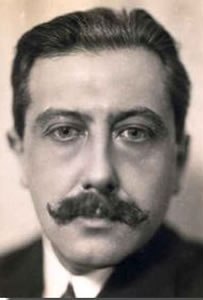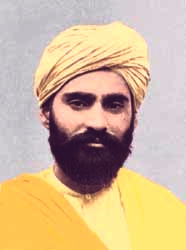A Quote by Thucydides
For we both alike know that into the discussion of human affairs the question of justice enters only where the pressure of necessity is equal, and that the powerful exact what they can, and the weak grant what they must.
Related Quotes
Grant us a common faith that we shall know bread and peace-that we shall know justice and righteousness, freedom and security, an equal opportunity and an equal chance to do our best not only in our own lands, but throughout the world. And in that faith let us march toward the clean world our hands can make.
Let us not be unmindful that liberty is power, that the nation blessed with the largest portion of liberty must in proportion to its numbers be the most powerful nation upon earth. Our Constitution professedly rests upon the good sense and attachment of the people. This basis, weak as it may appear, has not yet been found to fail. Always vote for a principle, though you vote alone, and you may cherish the sweet reflection that your vote is never lost. America, in the assembly of nations, has uniformly spoken among them the language of equal liberty, equal justice, and equal rights.
The man who cannot listen to an argument which opposes his views either has a weak position or is a weak defender of it. No opinion that cannot stand discussion or criticism is worth holding. And it has been wisely said that the man who knows only half of any question is worse off than the man who knows nothing of it. He is not only one-sided but his partisanship soon turns him into an intolerant and a fanatic. In general it is true that nothing which cannot stand up under discussion or criticism is worth defending.
Justice in the hands of the powerful is merely a governing system like any other. Why call it justice? Let us rather call it injustice, but of a sly effective order, based entirely on cruel knowledge of the resistance of the weak, their capacity for pain, humilation and misery. Injustice sustained at the exact degree of necessary tension to turn the cogs of the huge machine-for-the-making-of-rich-men, without bursting the boiler.
In dealing with those nations that break rules and laws, I believe that we must develop alternatives to violence that are tough enough to actually change behavior -- for if we want a lasting peace, then the words of the international community must mean something. Those regimes that break the rules must be held accountable. Sanctions must exact a real price. Intransigence must be met with increased pressure -- and such pressure exists only when the world stands together as one.
Water and petrol both come from the earth, and though they seem to be alike and even the same, they are in nature and purpose exact opposites, for the one extinguishes fire and the other adds fuel to it. So also the world and its treasures, the heart and its thirst for God are alike His creation. Now the result of the attempt to satisfy the heart with the wealth and pride and honours of this world is the same as if one tried to put out a fire with petrol, for the heart can only find ease and satisfaction in Him who created both it and the longing desire of which it is conscious.
To grant woman an equality with man in the affairs of life is contrary to every tradition, every precedent, every inheritance, every instinct and every teaching. The acceptance of this idea is possible only to those of especially progressive tendencies and a strong sense of justice, and it is yet too soon to expect these from the majority.
In The Federalist, James Madison called the rage for equality 'a wicked project.' People differ and rewards differ-that's the essence of both liberty and justice. No nation that rewards effort, talent, inventiveness and luck can even pretend to cherish equal outcomes. In an inventive and dynamic society, equal (even relatively equal) incomes can be achieved only by abandoning liberty for tyranny.








































